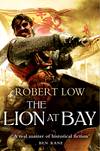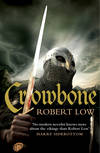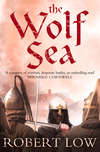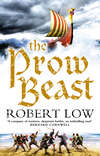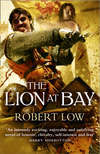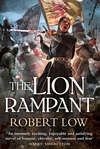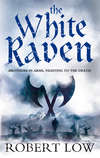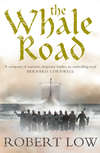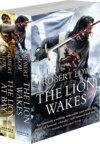Loe raamatut: «The Complete Kingdom Trilogy: The Lion Wakes, The Lion at Bay, The Lion Rampant»

ROBERT LOW
The Complete Kingdom Series Books 1-3

Table of Contents
Title Page
The Lion Wakes
The Lion at Bay
The Lion Rampant
The Complete Kingdom Trilogy – Historical Note
About the Author
Also by Robert Low
Copyright
About the Publisher
The Lion Wakes

ROBERT LOW
The Lion Wakes

To my wife, who is the sun on my shiny water: without her, I don’t sparkle
Contents
Cover
Title Page
Prologue
Chapter One
Chapter Two
Chapter Three
Chapter Four
Chapter Five
Chapter Six
Chapter Seven
Chapter Eight
Chapter Nine
Chapter Ten
Chapter Eleven
Chapter Twelve
Chapter Thirteen
Author’s Note
List of Characters
Glossary
Copyright

Being a chronicle of the Kingdom in the Years of Trouble, written at Greyfriars Priory on the octave of Septuagisma, in the year of Our Lord one thousand three hundred and twenty-nine, 23rd year of the reign of King Robert I, God save and keep him.
In the year of Our Lord one thousand two hundred and ninety-six, the Scots decided they had had enough of King Edward lording it over them with his appointed Balliol king and so declared. The English came north with fire and sword and the Law of Deuteronomy at Berwick, so that the slaughter caused the name of that town to be used as a watchword and rallying cry for ever after.
The defeated King John Balliol was brought to Edward’s feet, to be stripped of crown and regalia, the proud heraldry of his rank torn from his surcote, so that he was known as Toom Tabard – Empty Cote – ever after. The coronation regalia of Scotland – the Holy Rood and the Stone of Scone – was seized, while the Great Seal was ceremonially snapped in half.
Then King Edward rode south, giving control of what he now thought of as his own lands to a governor, to keep the Scots in thrall to him.
A man does good work,’ he declared, washing his hands of the place, ‘when he rids himself of such a turd.’
But the Scots would not bow the knee … there was rebellion in the north under Moray, the east under Frazier, in the west under a brigand called Wallace. Scotland’s bishops were defiant. Sir William Douglas, who was called The Hardy for his boldness, and had defended Berwick against King Edward, was captured and then pardoned into the king’s peace on his promise to serve in the English army in France. Not long after, he slipped his bonds of oath and came to join the rebels.
Stung to action by this last, King Edward ordered his loyal subjects in Scotland to oppose these rebels and Robert Bruce the Younger, Earl of Carrick, was sent to Douglas Castle, to slight the fortress and take Sir William’s wife and bairns hostage.
But when the lion wakes, everyone must beware its fangs …
Prologue
Douglas, Lanark
Feast of St Drostan the Hermit, July 11, 1296
The worst part had been the dark. No moon, no stars, just the whispering of lost souls searching the wind for a way home, or a body to slither into for the memories of warm blood and life. There had been owls and he did not like owls, for they shrieked like Cyhiraeth, goddess of woodland streams, who wraiths through the dark screaming at those about to die.
Gozelo knew he should not allow himself to believe in such matters, being a good Christian, but his grandmother, old Frisian that she had been, had stuffed his head with such tales when he’d been younger. It only came out when he was ruffled and fretted and even God would have to admit that this country He had clearly forsaken did ruffle and fret.
Not the country so much as the Cloaked Man. Gozelo shivered and dragged his own cloak tighter round him, moving on into the silvered dawn and happy to see the light. He had been heading for Carnwath, held by the Lord Somerville – English or not, he was at least light and heat and, above all, safety – but the dark had put paid to that and Gozelo was now certain he had missed that place and was headed for Douglas.
He worried that a man limping in on foot would be sent away with a curse and a waved spear. A man on a horse had status while one slithering through the wet summer dawn on ripped shoes, with a cloak and tunic stained with hard travel, was nothing at all, even if he was a Flemish Master Mason from Scone. Not only that, Gozelo knew that Douglas was home to a nest of former rebels, who could not be trusted to keep out the ones he was sure now hunted him.
Something whirred and Gozelo started, looked wildly round and hurried on. He should never have taken the task but that old mastiff-faced Bishop Wishart had cozened him into it with flattery and promises of a fat purse. Not that making the piece had been difficult and Manon had seen to the carvings; Gozelo did not doubt now that the poor stone worker was dead.
Then the Cloaked Man had appeared with a cart and a worn horse for it and the Fleming realised that they were taking the original and leaving the cuckoo in its place. Manon, he had been told, was paid and gone already; that was when the chill, cold as altar stone, had sunk into his very soul.
‘We take this to Roslin,’ the Cloaked Man had said in French. ‘There you will be paid, both for your skill and to keep your mouth closed on this matter.’
If it had just been the Cloaked Man who had schemed all this, Gozelo would never have countenanced it at all – but it had been a bishop, no less, who had broached the subject of it. Gozelo thought Bishop Wishart a singular churchman at the time, had basked in the warm flattery and the promise of riches until the long struggle after the cart, the relentless wet – Christ in Heaven, was there no other weather in this Scotland? – and the gibber of his own fears had melted his resolve like gold in the assay. The Cloaked Man, grim as a wet cliff, became more and more sinister with each passing mile until, no more than a good walk from Roslin, the last of Gozelo’s courage crumbled and he ran.
The Cloaked Man had thought hard about it. Gone off without the fat purse and in a panic for his life, having finally worked out the possibilities. Aye, well – smart wee man that he was, he would work out more when his legs stopped long enough to let his mind start running. Like how to make up the lack of fat purse. He would head for Lanark and the English sheriff, Heselrig, where he would tell all he knew.
It was, the Cloaked Man noted, just as Wishart had said, calling him aside with a quiet: ‘If you trust os vulvae, then you are a fool. Go with God, my son.’
The Cloaked Man had to admit the bishop had been right, both about the Fleming’s character and how his mouth, wet-lipped and surrounded by a silly fringe of beard and moustache, did look like a woman’s part if you turned your head sideways. The Latin of it, os vulvae, the Cloaked Man decided, sounded better than the English – cunt face.
Of course, the Cloaked Man reasoned, clucking the weary pony up to the castle at Roslin, this Fleming may just head on to Dumfries and the English border. He was a Master Mason, after all, and would not be short of work for long.
Sir William Sientcler, the Auld Templar of Roslin, gave him a good, fast hobin horse and a sharp, meaningful glance when this had all been laid out to him.
‘Mak’ siccar,’ he said and the Cloaked Man nodded. He would make sure.
Gozelo could see the faint lights in the dark and almost sobbed with the relief of it, for he was now close to Douglas and could find shelter there before going on to Lanark. He would tell all he knew, he thought viciously, for what the Cloaked Man had put him through. He had convinced himself that he had been right to run before he had been black murdered in the dark. He would never return to this country again and would tell all he knew to the English, even after what they had done to the Flemings – some of them kin – in Berwick. They would pay, too and offset the loss of the promised purse. What was a silly stone to him, after all?
The shape rose up from behind the last fringe of trees leading to the water meadow that ran down to the shrouded bulk of the fortress and the so-near lights. Gozelo screamed, high as an owl, but it was all too late.
‘You went off without your due,’ the Cloaked Man said mildly and Gozelo fell back, babbling wildly, in French, English – any language that came to him. He was only vaguely aware of his bowels running down his leg, his mind a mad whirl of pleas that his mouth could not get out quickly enough.
‘You’ll say nothing?’ the Cloaked Man repeated, catching one of them as it spewed out, and saw the Fleming nod so wildly it seemed his head would fly off.
The Cloaked Man nodded sympathetically, then reached up with both hands to draw back the hood and show himself to the moon. The pallid light of it did nothing for his face and made the four-sided sliver of steel in one fist wink; Gozelo shrieked so high only dogs could hear him.
‘Best mak’ siccar,’ said the Cloaked Man into the Fleming’s bewilderment, stepping close and punching once; Gozelo leaned against him like a spent lover, then was gently slid to the mulch and the undergrowth.
The Cloaked Man wiped the dagger clean on the Fleming’s cloak, took what he needed from the unresisting corpse and left, leading the horse until he was sure he was clear away.
It was, he suddenly realised, the day after Longshanks had decreed for all Scotland’s community of the realm to meet at Brechin and witness what happened to a king who defied English Edward.
There had been, no doubt, humiliation and lies and vicious-ness. Edward would already have packed up the Rood and the Seal and the Stone as he had threatened, stripping both King John Balliol and kingdom of authority.
But Longshanks did not have all of Scotland in his grasp – one small part of the Kingdom had been taken from his fist.
The Cloaked Man smiled, warmed by the thought even as the summer mirr soaked him.
Chapter One
Douglas Castle, almost a year later
Vigil of St Brendan the Voyager, May 1297
The hounds woke Dog Boy as they always did, stirring and snuffing round him. Where there had been heat was suddenly cool and growing colder until it hooked him, shivering, from sleep.
At his movement, the dogs were round him, tongues lolling, panting fetid breath in his face, whining with hopeful looks and fawning eyes to be fed. They knew the routine of the day as well as Dog Boy – better, according to the Berner’s right-hand, Malk.
Dog Boy struggled up, speeding the process as the cold air chewed him. He pulled straw from his hair and clothes, fumbled for his pattens and stumbled in the half-dark of the kennels, a long, low building of wattle and daub with timber pillars. There was no light for fear of fire and the rear wall was solid, cold stone, part of the brewhouse; the only light dappled through the chinks in the daub on to the straw floor, which stank as it did every morning.
He found a rough wool over-tunic on a hook near the leashes, pulled it over his head and fumbled his arms through the holes, blowing on his hands for it was cold just before the dawn. Someone coughed; heads appeared, dark knobs surfacing through the straw and the other kennel-lads struggled into a new day. The dogs whined and whimpered, wriggled and circled endlessly, tails working furiously, wanting fed.
‘Soft, soft,’ Dog Boy soothed. ‘Quietly. It won’t be long.’
Unless there was a hunt, of course, in which case the dogs would not be fed, for full bellies made poor runners and the runners were the hounds he, with a handful of other lads, was responsible for. Raches and limiers, they were, about thirty all told, and they circled and whined while the other hounds, partitioned off to keep them from each other’s throat, started up a hoarse, howling bark.
‘Swef, swef,’ Gib called out to silence them, showing off the French he had learned from Berner Philippe. The dogs ignored him and Dog Boy smiled to himself – the limiers were English Talbots, white sleuthhounds, all nose and no stamina; Dog Boy thought it unlikely they would know any French. The raches were all colours, Silesian-bred hounds forming the bulk of the pack and made for long running. Once the limiers marked the trail, the raches would follow relentlessly until they brought the prey to bay or dropped.
He thought it unlikely any of them would understand French – if dogs understood any language at all – but France was the place thought to be the home of hunting and so all the hounds were given their French names and the head houndsman was a Frenchman, given his title in French - berner. Yet the prey they hunted here was the same – hart, hind and boar, all the preserve of the Dale, the Water and beyond, the lands given by God and King into the hands of the Douglas.
Beyond the thin partition, the other boys stirred as the alaunts and levriers bayed and howled. Dog Boy shivered and it was not from the cold: there were twenty levriers in there, fighting grey gazehounds with cold eyes and snarls. Yet even they balked and put their tails down when the strangers, two great rough-coated and huge deerhounds, curled a leathery lip.
The levriers were capable of running down and tackling a young, velvet-horned hart or a doe, the alaunts could tackle a good stag if it had been brought to bay, but only the deer-hounds could run a prime stag into the ground and still have the wind left to drag it down.
Douglas had no deerhounds, so it came as a shock to see this pair arriving with Sir Hal of Herdmanston and his riders. It had seemed to Dog Boy that there were a lot of riders for a simple hunting party, but he had been put right on that by Jamie and others – Sir Hal had come in the guise of a hunting party, sent by his father to hold to the promise they’d made to the Douglas fortalice to defend it in time of threat. There was no larger a threat, it had seemed, than the Lord Bruce of Carrick and his men, come to punish the Lady and her sons for her husband’s rebellion against the English King Edward.
It had come as a shock to Dog Boy to see all those men – more folk than he had ever seen in his life before – flowing round the castle like spilled oil. It was even more a shock to see how unruly the Herdmanston dogs were, so that the wolf-howls of them set every hound in Douglasdale off. Berner Philippe had been furious – but, to everyone’s surprise, the sight and smell of Dog Boy had calmed the two great beasts almost at once.
‘This one is Mykel,’ Master Hal had told him, and the dog had looked at Dog Boy with great, limpid eyes. ‘It means great, an old Lothian word. The other is called Veldi, which means power in the same tongue.’
Dog Boy nodded, breathless with the attention of the towering, smiling Hal and his towering, smiling crew, with names like Bangtail Hob and Ill Made Jock. Veldi, pink tongue lolling from between the white reefs of its teeth, looked at Dog Boy, the blue-brown eyes unwinking, and he felt the sheer heartleap of surety that these dogs were angels in disguise.
He tried to say as much, but could only manage ‘angels’, which made the giants laugh. One clapped him on the shoulder, almost driving him into the ground with the strength of it.
‘Angels, is it? Wee lad of pairts you, are ye not?’ this one said – Dog Boy had heard the others call him Tod’s Wattie. ‘Ye’ll chirrup different first time these hoonds of hell mak’ ye birl yer hocks in the glaur.’
From his bitterness, Dog Boy knew the dogs had somersaulted Tod’s Wattie into mud at least once; he could have sworn Mykel winked at him and he laughed, which made Tod’s Wattie scowl and all the others slap their thighs at his expense.
Sir Hal, grinning, had told him to take good care of his pets and Dog Boy had looked up into the old-young face, bearded and with eyes like sea haar, and loved the man from that moment; Mykel nudged a rough muzzle under his arm and stared at him with huge blue-brown eyes.
Once, on the day he had arrived in Douglas, Dog Boy had seen a hound as big as Mykel. A wolfhound, he had learned, rough-coated and big as a pony it seemed – but Dog Boy knew that he had been smaller then and had an idea that the deerhounds were even longer in the leg.
That animal had died when Dog Boy was eight, two years after his mother, walking proud and desperate, had shepherded him through the gatehouse of this place, which had been wooden then. On it had hung the Douglas shield, with its three silver stars – mullets, Dog Boy had been told, though he could not see that they looked like fish. He now knew – because Jamie Douglas had told him – that it came from the French, molette, which was a six-arrayed star.
Jamie, despite their differences in rank, was his friend and could read and knew where France lay. Dog Boy could not read at all and had no idea even where England was and a vague idea that Scotland lay fairly close to Douglasdale.
He knew that the English of England had come to Douglasdale, all the same, for Jamie spoke of little else these days, bitter that his mother had given in without a fight; now the Carrick men swarmed inside and outside Douglas Castle and the Lord Bruce, young and certain of himself to the point of arrogance, had politely taken over, in the name of the English – even though he was not one.
The one certainty in Dog Boy’s life, the thing that he hugged to himself when everything else seemed to whirl like russet leaves in a high wind, was his age – eleven. He knew this because he heard his mother say it, knew her voice better than he did her face.
He could not remember his father, though he had a rag-edged memory of stumbling in the plough ruts behind a man making kissing sounds to two oxen which were not his own, watching the plough blade curve a wave out of the earth.
He could feel it yet between his naked toes, see the birds wheel and cry at the exposed beetles and worms. It had been his job to get to the worms first and tuck them safely back in the torn ground, for they were ploughers of the earth every bit as much as Man. He heard a voice say that and thought it might have been his father – but all that was gone, save for the moment when the great slab face of his da came down to his level, the crack-thumbed hands on either of his thin shoulders.
It had come at the moment after he had run across the fields clutching the rough bag with a slab of day-old porridge and two bannocks in it. Run like a deer to where his da stood with the oxen he was so proud of owning. No-one else had such a prize.
His da had looked at him for a long time and then crouched down into his face.
‘Tha runs fast as a wee dug,’ he said sadly. ‘Fast as any wee dug.’
The day after that his ma had walked him into the castle and stood looking at Berner. Dog Boy was ashamed these days that he could not quite remember his own ma’s face now, but he remembered her voice and the feel of her hand on the top of his combed head.
‘I have brung him,’ she said. ‘As Sire said I could, when he could run fast as the dugs. He is six.’
Since then, there had only been those stones and the dogs.
Malk, the Berner’s assistant, reckoned up Dog Boy’s age and marked it in the Rolls along with the birthing dates of all the hounds and their pedigrees. It did not matter to Dog Boy, for he did not know, that Malk could trace a hound’s lineage back through several generations and recorded Dog Boy only as a scion of ‘bound tenants’ from a huddle of cruck houses twenty miles away.
It would have been a surprise to Dog Boy to know that he had a name, too – Aleysandir, same as the king who fell off a Fife cliff and plunged the whole of Scotland into chaos in the year Dog Boy was born – but Dog Boy did not know any of that and had been Dog Boy for so long that he knew no other name now.
‘Get aff me, ye dungbags!’
The voice jerked Dog Boy guiltily back to the kennels; Gib was pushing dogs away and, beyond him, The Worm stretched and yawned noisily, straw sticking out from his unruly hair. Dog Boy scratched a fleabite and then half-crouched, his habitual pose at sudden noises and surprises, as the heavy door banged open, flooding in cold light and chill air.
‘Avaunt, whelps.’
Silhouetted briefly in the pale square light of the doorway, the figure paused slightly, then stepped in, flicking his dogwhip; the hounds knew him well and circled away from him, yet kept coming back, tails down, fawning and whimpering.
Berner Philippe had to stoop to avoid the low roof, though he was not tall. He wore a battered leather jack to protect the plain, stained-wool robe, itself worn to keep the pale-grey tunic clean from the dogs. He also wore his habitual sour sneer, which bristled his trimmed black beard.
‘Come on, come on, stir yourselves,’ he growled. ‘There’s work to be done – where is Gib?’
Gib stumbled forward, picking straw off himself and rubbing sleep from his eyes. He swept a bow, almost mocking, as he showed off his little command of French.
‘A votre service, Berner Philippe’
The scowl deepened a little as Philippe looked at him. This one was becoming too familiar by half. It wouldn’t do. He tongued the stump of a tooth, then forced a smile and patted the boy on the cheek.
‘Ah, lordling,’ he said lightly. ‘Such manners, eh?’
The others watched him caress Gib as he would do the dogs, chucking him under the chin, fondling behind one ear; it was as much part of the ritual of morning as waking, for Gib was the berner’s favourite.
There were six houndsmen under Berner Philippe. Together with the six piqueurs, the huntsmen, they considered themselves the true Disciples of Douglas, not the strutting men-at-arms, who numbered the same. If that were so, then Berner Philippe was St Peter, White Tam, the head piqueur was James, brother of Jesus, the Lady Eleanor was the Virgin Herself – and The Hardy was Christ in Person.
Thus was life arranged by Law and Custom, which is to say, by God.
‘Take five lads and clean this cesspit,’ said Philippe and looked from Dog Boy to Gib and back again. Then he nodded to Gib and watched as the boy shambled off to obey. He was getting bigger … too big, God’s Wounds. What had once been soft flesh was filling and hardening and, even to a nose used to stinks, Gib reeked more and more positively of dog every day.
Dog Boy stood, looking at the fetid straw as if there was a cunning picture in it, and Philippe wondered, as he had always done, why he had never taken to the lad. Too scrawny, probably. There was a new lad – Philippe’s head swung this way and that like a questing hound on a scent. What was his name … ? Hew, that was it. That was the name his parents had given him, but he was on the Rolls with an easily remembered nickname – a dog name, Falo, which meant ‘yellow’, and Philippe picked him out from the others by his cap of golden hair.
Disappointment. Too young – still, that blond hair, which spoke of decent ancestry implanted in the mongrel Scots, fell over the boy’s face as he gathered armfuls of stinking straw and Philippe’s groin tightened a little. Worth waiting for …
He caught sight of Dog Boy, edging, as always, into the shadows. Dog Boy felt more than saw the eyes fall on him and stopped, dull with despair.
‘You,’ Philippe said shortly, eyeing the thin-limbed, dark-eyed boy with the distaste he gave to all runts. ‘Mews. Gutterbluid wants you.’
Outside, the cold bit Dog Boy and he hugged himself, dragging himself to the mews across the expanse of Ward in a cold wind out of the charcoal sky. Dog Boy eyed the glowing coals where Winnie the smithwife was blowing life into the forge fire, sparks flying dangerously up to the stiffened thatch of the wagon shed and the great stretch of stables. Beyond was the palisade and ditch, the gatehouse, newly done in stone, and the wooden dovecote etched blackly against the slow, souring milk of a new dawn. Behind, the bulked towers and stone walls of the Keep humped up and lurked over him.
The forge flames flared and danced brief eldritch shadows up the wall of one tower, to the narrow cross-slit window of the chapel, where light glowed, the honey-yellow of tallow candles; Brother Benedictus, the Chaplain, was already at his devotions, murmuring so that Dog Boy was almost sure he heard the words he knew so well:
Domine labia mea aperies. Et os meum annunciabit laudem tuam. Deus in adiutorium meum intende.
Dog Boy, hurrying on past the bakehouse, already spewing stomach-gripping smells and smoke, muttered the expected response without thinking – Ave Maria, gracia plena. The rest of it followed him, circling faintly like a chill wind off the river – Gloria patri et filio et spiritui sancto. Sicut erat in principio et nunc et semper et in secula seculorum. Amen. Alleuya.
He went past the dovecote, with its steep little roof surmounted by a strange bird pecking its own chest, and saw Ferg the scullion fetching new loaves and grinning at him, for he knew the Latin words as well. Neither had a clear idea of what they meant and knew them by rote only.
Next to the bakehouse, the kitchen sheds were quiet and coldly pale, as were most of the buildings within the rough palisade separating the Ward from the Keep, where lay the Great Hall, the stables and barracks and some little gardens.
Somewhere, high up on the hourds, watchmen stamped and blew on their hands. Soon those wooden hoardings would be dismantled, for the need for them was gone now that the Lady had given in to the Carrick men.
There had been a moment of confusion a few days later when a new host appeared, smaller but no less fierce. Dog Boy had heard the leader of it hailed as the Earl of Buchan and Jamie had muttered that no-one was sure whether this Comyn lord was for or against King Edward.
Dog Boy had watched them arrive, with their banners and their shouting; it had been exciting for a while and he wondered if he would see fighting – but then it had all ended, just like that. It was a puzzle that the Lady of Douglas now treated the Invaders as Friends and the castle was crowded with them, while more were huddled in makeshift shelters all over the Ward and beyond.
‘Dog Boy,’ called a voice, and he turned to see Jamie stepping from the shadows. Dog Boy bowed and Jamie accepted it as his due, since he was The Hardy’s eldest, with black braies and a dagged hood, a fine knife in a sheath on his belt, good leather boots and a warm surcote.
He was of ages with Dog Boy, yet bigger and stronger because he trained with weapons and would one day take the three vows and become a knight. One day, too, he would become Jesus Christ, Dog Boy thought, when his father, The Hardy, died and left him the lordship of Douglas. Even now he was able to fly a tiercel gentle, a male peregrine, if he chose – the memory of where that bird roosted brought misery crashing back on Dog Boy.
‘Cold,’ Jamie offered with a grin. ‘Cold as a witch’s tit.’
Dog Boy grinned back at him. They were friends of a sort – even if Dog Boy wore worn, mud-coloured clothing and was of no consequence at all – because Jamie liked the dogs and had no mother, like Dog Boy. Dog Boy had questioned this once, because he had thought the Lady Eleanor was Jamie’s mother, but Jamie had put him on the straight road of that one.
‘My real mother was sent away,’ he said bluntly. ‘To a convent. This one is my father’s new woman and the sons he pupped on her are my stepbrothers.’
He turned and looked at Dog Boy then, savage as his tiercel.
‘But I am the heir and one day this will be mine,’ he added and Dog Boy had no doubt of it. It was what they shared, what cut through their stations. The same age, the same colouring, the same abandonment by ma and da. The same loneliness. It had all brought them together from the moment they could toddle and they had rattled around like two stones in a pouch ever since.
Both of them knew that changes were happening, all the same, as much to their rank as their bodies, and that unseen pressures were forcing them further and further apart. Dog Boy would never be anything more than he was now – Jamie would become a knight, like his father.
There had been no knights other than The Hardy in Douglas, though there had once been twenty men-at-arms, with stout jacks, swords and polearms. Now there were only six, for the rest were gone and Dog Boy felt the cold unease slide into him, the way it had done the year before when the four surviving men had carried a fifth in through the gate.
They also carried the news that The Hardy was imprisoned and all the other Douglas men were dead, together with some thousands of folk who had been living in Berwick when English Edward had captured it.
‘The blood came up ower the tops of my shoes,’ Thomas the Sergeant had told them, and he should know, for some of it was his and he wore the scar, raw as memory, down one side of his face. He had been the fifth man and, for a while, it looked as if he would die – but he was tough, folk said, hard as Sir William Douglas himself.
Jamie loved and feared his father in equal measure and the fact that Sir William had survived the siege and slaughter at Berwick and was fighting still, flooded his world – though Dog Boy did not quite understand all of it and Jamie explained it, as if schooling a hound.
